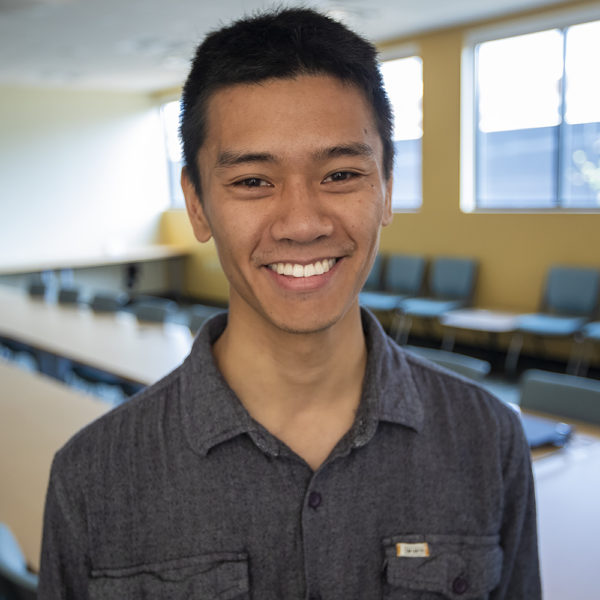COVID Was Hard On Youths, But It May Have Spurred 'Post-Traumatic Growth'
When Jackson Morgan thinks about who he was at age 18 and 19 — before the pandemic — he puts his head down and pushes his feet into the sand outside his family's house on Plum Island.
“The guy I was a year ago, I was very different. I mean, I was a hothead. I had anger issues and stuff,” Morgan says. “I would damn near blackout when I got really mad and start to fight, and I wouldn’t remember bits and pieces of it.”
But the pandemic changed everything for Morgan. When COVID-19 took the lives of two members of his family, processing that grief led him down a path of introspection and, ultimately, deep change.
Today, he still cares about doing well in school and staying in shape. His favorite activity is still lifting weights at the gym.
But those aren’t the things that stand out to him anymore. Instead, it’s the fact that he’s learned to manage his emotions better and, by his reckoning, he's becoming a better person. Part of it, he thinks, is because of how much his life has changed after first his uncle, and then his grandfather, died of COVID-19.
“Taking things into perspective regarding those two definitely played a big part in it,” he says.
Research shows that trauma and turmoil can lead to worse mental health. But sometimes, grief gives way to growth, and the experience of pain and hardship from a traumatic event is the very thing that catalyzes a positive transformation – a process psychologists call post-traumatic growth.
Teenagers, who straddle the precipice between childhood and adulthood, may be especially primed for post-traumatic growth. And because the pandemic provided no shortage of upheaval for kids and families, some mental health experts believe COVID-19 might have spurred a generation of growth, even though it inflicted so much pain.
Advertisement
“The trauma and loss that we all experienced as part of this pandemic – you can imagine how much of an impact that can have on a young person’s emotional development,” says Dr. Christine Crawford, a child and adolescent psychiatrist at Boston Medical Center. “It’s almost as though young people are at a crossroads where they’re able to look at themselves and figure out which path they want to go down in terms of who they are as people – and who they want to become as adults.”
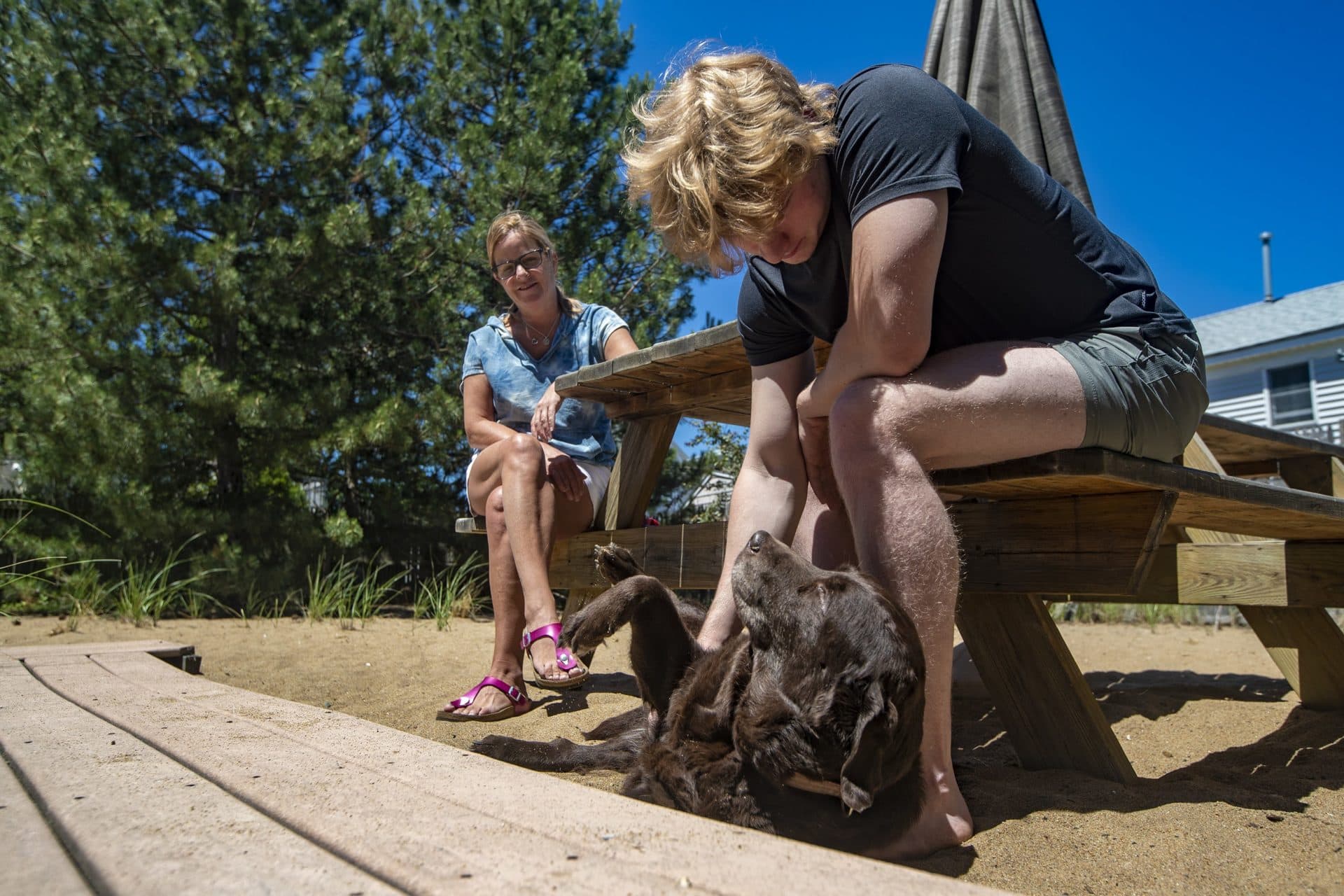
Jackson Morgan’s been doing a lot of that kind of reflection over the past year – especially about all the times he got into fistfights. He says he mostly fought with his younger brother, Alec, but sometimes he’d get into it with friends or even strangers.
One of the worst fights was a few years ago during a family vacation in Italy. Morgan can’t remember what started it exactly, but his brother said something that struck a nerve.
“And I came up from behind, and I dropped him in front of a group of guys. And these random strangers had to pull me off of him and told me to get out of there before the cops came,” he says. “Patience. I had none a year ago. I was always just angry.”
Then the pandemic started, and in March of last year, Morgan’s uncle, Michael, got sick and had to be hospitalized for COVID-19. His uncle’s chances were worse than most. Michael was born with Down syndrome and was premature – which left his lungs more vulnerable to COVID.
“He wasn’t getting any better, and he was alone. He must have been confused in the hospital because he didn’t know what was going on, like we couldn’t visit him or anything. It must have been pretty awful for him,” Morgan says. “I don’t even want to imagine it.”
Michael struggled in the hospital for about a month before he died. Morgan remembers the day he got the news.
“My grandfather had said, and I quote, ‘We’ve been waiting for this day,' ” Morgan says. “To have to know that he died alone – like with none of us, for God knows how many weeks it was in that hospital – that just kind of hurt, you know? It just sucked.”
Morgan says his mom was inconsolable, and seeing her grief was one of the hardest things he’d ever dealt with. He remembers that he and his younger brother just held her.
“This definitely made me look at life differently. Especially seeing my mom go through all this. It was hard watching her, like, break down all the time, you know? And I get it. She’d just lost a brother – a younger brother,” he says. “I didn’t really know what to do. I just wanted to comfort her."
It was hard watching her, like, break down all the time, you know? And I get it. She’d just lost a brother – a younger brother. I didn’t really know what to do. I just wanted to comfort her."
Jackson Morgan
But then, Morgan did something his mom really hated – he got into another huge fight with his brother.
“I hit him in the face in front of my mom — right in front of her — damn near as hard as I could,” Morgan says. “And I just felt so horrible that she had to see that.”
That was the last straw, Morgan says. Unlike all the other times after he and his brother threw punches, he knew he needed to change. After that, when he felt his blood start to boil, he started making a conscious effort to calm down and control his emotions.
“It used to be something where I had to really, really, really try hard,” he says. “I just learned to sit back and breathe, you know? That’s definitely the best thing that’s come out of this pandemic. Me just learning to cool off.”
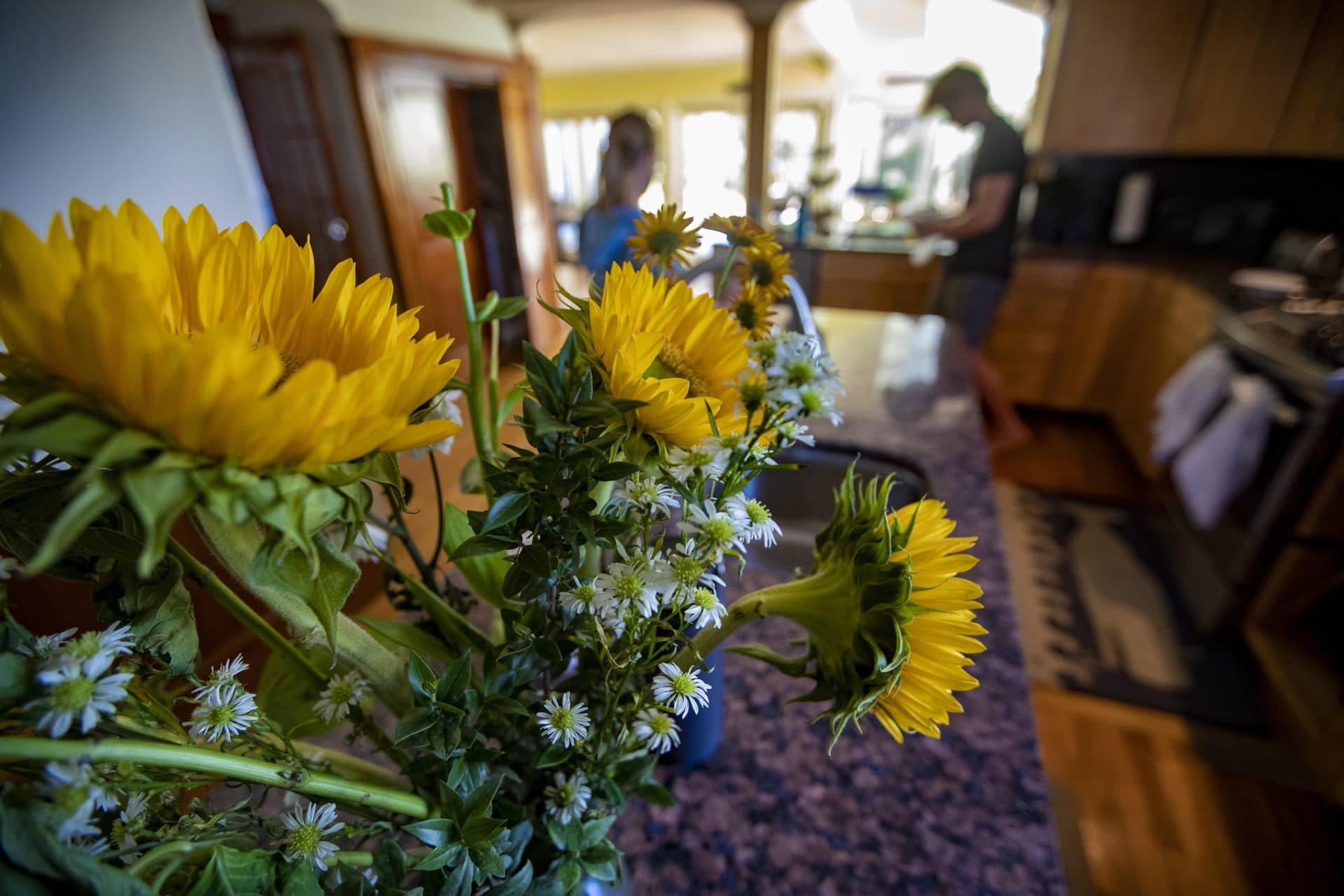
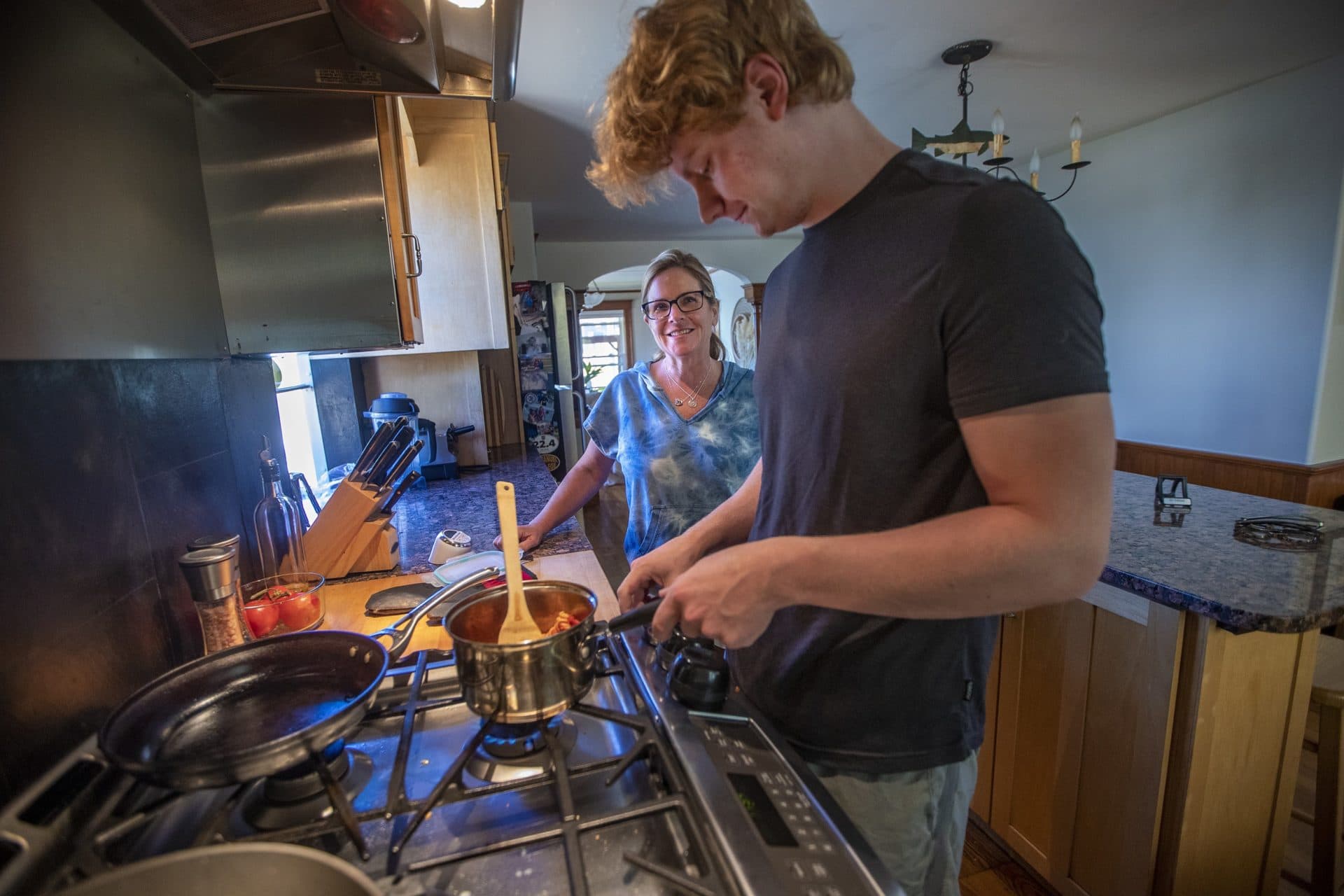
Other things helped, too. He realized that working out and lifting weights allowed him to blow off steam and come home feeling calmer and better. That type of strategy is one of the most important things adolescents are supposed to learn as they become adults, says Boston Medical Center's Crawford. But the pandemic forced many young people to learn to cope faster.
“When we’re thinking about the pandemic, for a lot of young people, this was the first time they experienced loss in their life. So, it’s almost like a test,” she says.
Crawford says sometimes that test of how to manage extreme stress doesn’t go well, particularly if young people don’t have help from adults or space to process their experiences. Trauma can push them towards anxiety, depression, drug use or other negative behavior. But often, they start to move in a different direction, learning — as Morgan did — to regulate their emotions better and find positive coping strategies.
Even more radical changes can happen when people face trauma, says Jean Rhodes, a psychologist at the University of Massachusetts, Boston. Sometimes, trauma can kick off a process of transformation where people develop new priorities and a new sense of self, leading to more profound post-traumatic growth.
"Post-traumatic growth ... really does require a kind of reckoning and a rebuilding. That’s what post-traumatic growth is: bouncing forward in some ways, bouncing toward a new set of values and perspectives."
Jean Rhodes
“Often when there’s an event of this nature, like a global pandemic where they may have suffered loss, it really does act as an inflection point," Rhodes says. "Things that that shook them out of the normal sort of inward-facing adolescent."
Adolescents are already learning to define themselves as adults. Rhodes says difficult events can force them to more rapidly and deeply challenge their understanding of the world and evaluate how they want to change. If a caring adult or mental health professional is there to guide them through the trauma, they're more likely to experience growth – and less likely to have negative outcomes in their mental health.
“Post-traumatic growth does not come easy. It really does require a kind of reckoning and a rebuilding," she says. "That’s what post-traumatic growth is: bouncing forward in some ways, bouncing toward a new set of values and perspectives.”
One important caveat is that post-traumatic growth is not necessarily happiness, Rhodes adds. Sometimes, people experience positive changes even as they continue grappling with the pain of their loss or trauma.
Half a year after Jackson Morgan lost his uncle, his grandparents got COVID, too. His grandmother survived, but his grandfather didn’t.
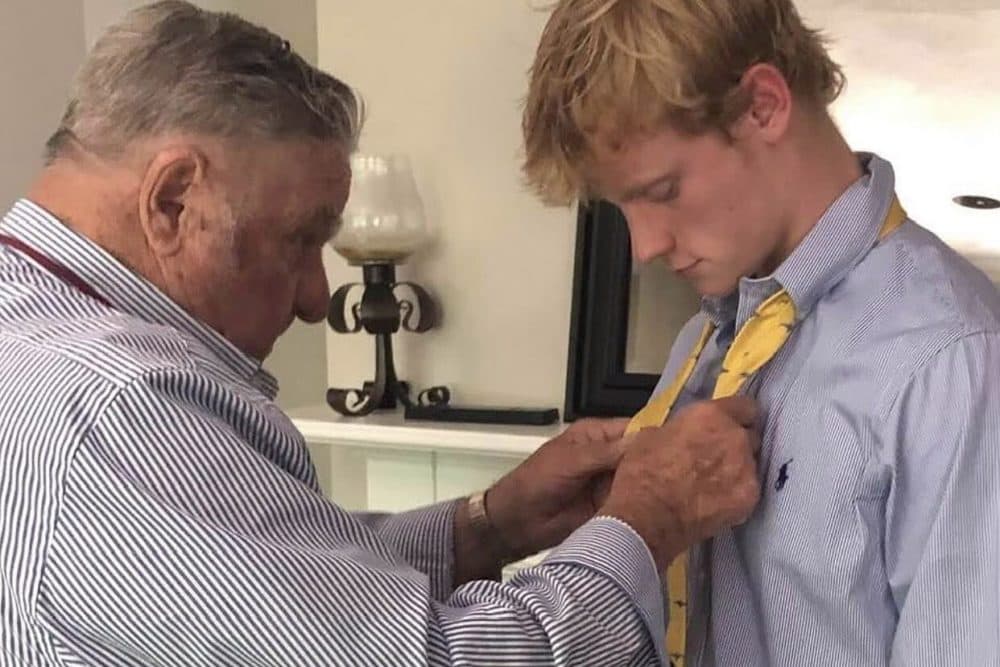
It deepened the period of reflection for Morgan and for his younger brother, Alec, too. The brothers say there are times when they feel fine and then, suddenly, a thought or a memory makes them realize, they’ll never see their uncle or their grandfather again.
More than anything, the brothers say they wish they’d spent more time with both men before they died, and that's made them value family and relationships more.
“More so than any hobby that I have,” Morgan says. “Just because of the year we’ve had, and the people we’ve lost. I don’t want to go through it again and feel regret.”
Now, he says he’s trying to be a new person. Someone who doesn’t lash out or act violently. He wants to be someone who’s more understanding and supportive. He’s still working on it, he says, but he’s happy with the changes he’s made so far.
“I’m definitely trying to be better. Michael was such a great guy, so I’d like to change for him,” Morgan says. “He was awesome. He was really funny. He just made me laugh a lot.”
This project is funded in part by a grant from the NIHCM Foundation. Illustrations and animations in this series were created by Sophie Morse.
This segment aired on June 25, 2021.
